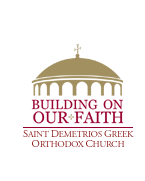GLOSSARY
Sacrificial Gift — A gift that will reflect the significance of our church and faith in our lives. For each of us, there is an appropriate sacrificial gift in accordance with our means. We have all read the Gospel and understand the lesson of the poor woman whose small gift was the most generous of all because for her it was not from her abundance but from her heart!
Construction Budget — A budget that takes into account the hard costs of construction, such as masonry, mechanical equipment, steel, fixtures, finishes, etc. This includes all charges including labor.
Project Budget — A complete budget for the development project including all the hard costs plus soft costs such as financing cost or interest carry, contingencies, fees such as building permit application fees, builder’s risk insurance, and the like. Also included are the architect’s fees, engineers’ fees, and other specialist fees.
Construction Manager (CM) — A builder who signs a form of construction agreement with the owner that obligates the firm to construct the building in cooperation with the designer and owner, buying all the construction services including subcontracts on behalf of the owner where all the bids are transparent and are awarded by the owner. The paper flow is typically managed by the construction manager.
Guaranteed Maximum Price (GMP) — An element of many construction management agreements where after the design is complete and the subcontractor bids have been received, the CM will guarantee the maximum price to deliver the project.
Construction Loan — Typically a bank loan secured by certain assets such as land, and work in progress, liquid assets, and for private developers, personal guarantees of completion and repayment, used to fill the gap between available funds and the total project cost. While fundraising on a non-profit project continues, construction may commence in accordance with the schedule of the institution.
Divisions of Construction — A very succinct method of accounting for the work of certain contractors under the tasks they are obligated to perform. There are sixteen (16) divisions:
Division 01 — General Requirements
Division 02 — Site Construction
Division 03 — Concrete
Division 04 — Masonry
Division 05 — Metals
Division 06 — Wood and Plastics
Division 07 — Thermal and Moisture Protection
Division 08 — Doors and Windows
Division 09 — Finishes
Division 10 — Specialties
Division 11 — Equipment
Division 12 — Furnishings
Division 13 — Special Construction
Division 14 — Conveying Systems
Division 15 — Mechanical
Division 16 — Electrical
Mechanical Equipment — All the equipment used for the functioning of the building such as heating, ventilation and air conditioning (HVAC), plumbing, electrical and others.
Acoustical Engineer — An engineer concerned with advising the design team on elements of design that ensure the proper propagation of sound in a structure in order to fulfill the buildings purpose effectively.
Civil Engineer — The engineers who design all the structures and systems that relate to the building such that these are in full compliance with the permitting authorities. These tasks may include traffic engineers, septic system design, water and fire protection systems, code compliance of the building’s design and placement, and more.
Mechanical Engineer (ME) — The engineer who designs the mechanical systems required by the new structure.
Structural Engineer — The professional who collaborates with the architect to provide for the structural soundness of the new building.

